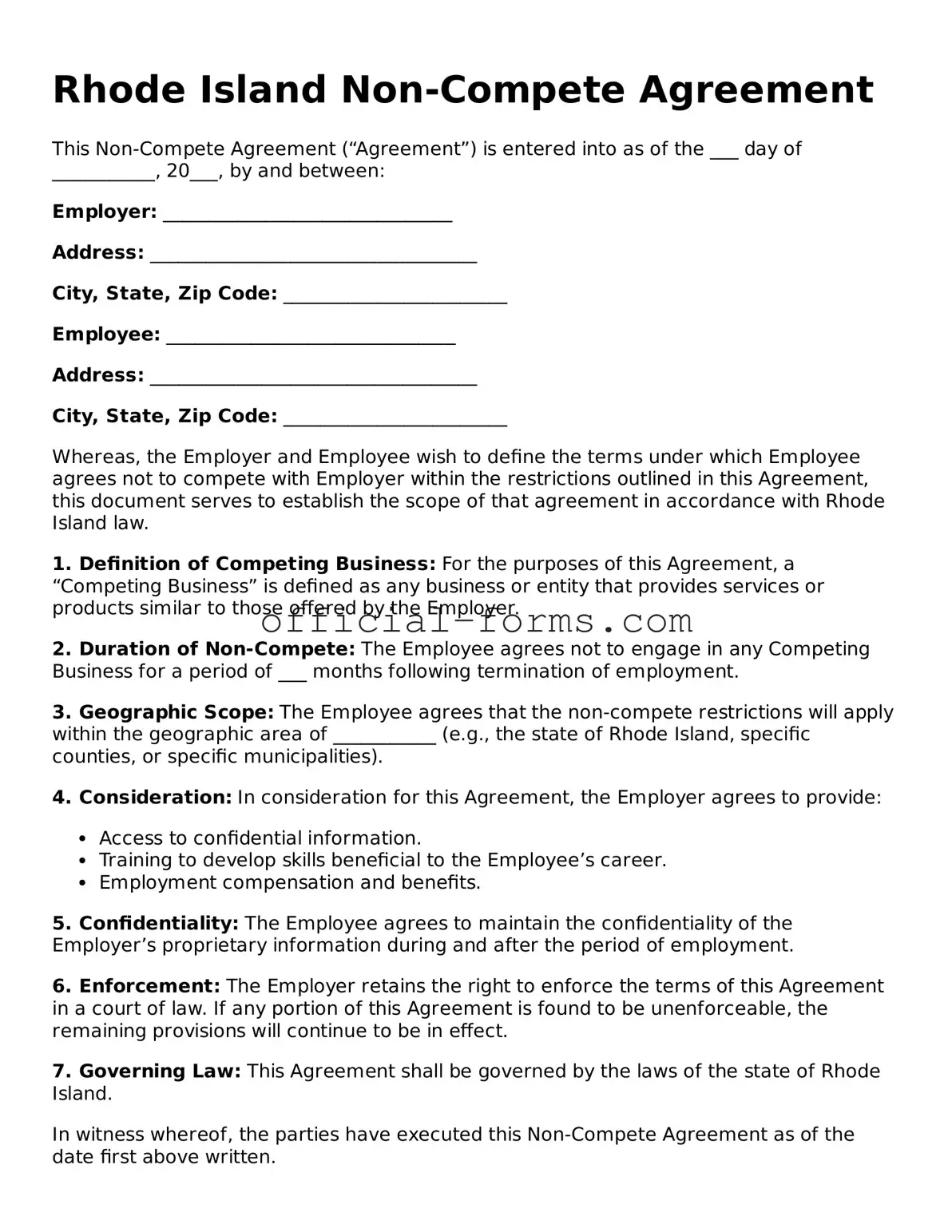Filling out the Rhode Island Non-compete Agreement form can be a straightforward process, but individuals often make mistakes that can lead to complications. One common error is failing to read the entire document thoroughly before signing. Understanding the terms and conditions is crucial, as this agreement can significantly impact future employment opportunities.
Another frequent mistake is not specifying the geographic area covered by the non-compete clause. A vague description can lead to confusion and potential enforcement issues later on. It’s important to clearly define the boundaries to avoid misunderstandings.
Many individuals overlook the duration of the non-compete agreement. The length of time the agreement is in effect should be reasonable and clearly stated. An overly long duration may raise questions about enforceability, so it’s essential to strike a balance that protects both parties.
In some cases, people neglect to consider the scope of activities restricted by the agreement. A well-drafted non-compete should specify the types of work or industries affected. Failing to do so can result in an overly broad agreement that may be challenged in court.
Another mistake involves not consulting with a legal professional before signing. While it may seem unnecessary, seeking legal advice can provide valuable insights into the implications of the agreement. This step can help prevent future disputes and clarify any confusing terms.
Individuals sometimes forget to include any exceptions to the non-compete clause. If there are specific circumstances under which the agreement should not apply, these should be explicitly stated. Omitting such details can lead to complications if the need arises to invoke the exception.
Additionally, people may fail to keep a copy of the signed agreement for their records. Having a personal copy is important for reference and ensures that both parties are aware of their obligations. Without it, misunderstandings may arise.
Some individuals do not take the time to negotiate the terms of the non-compete. It is often possible to modify certain aspects of the agreement to better fit individual circumstances. Engaging in a discussion about the terms can lead to a more favorable outcome.
Lastly, a common mistake is not considering the impact of the non-compete on future job opportunities. Before signing, it’s wise to reflect on potential career paths and how the agreement might limit options. This foresight can help individuals make more informed decisions.

